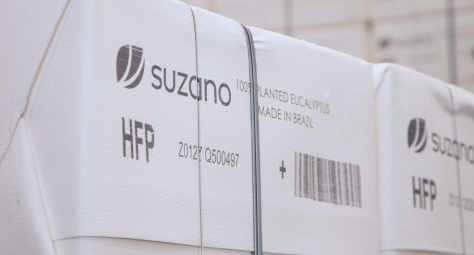sobre o que você deseja falar?


perguntas, sugestões ou problemas técnicos envolvendo a plataforma

informações sobre a empresa


Inspired by trees, Suzano has embraced the understanding that life is a constant renewal process. Trees play a crucial role in addressing some of society's most pressing challenges, including climate change, the depletion of natural resources, biodiversity loss, and growing social inequality. For this reason, the company is committed to strengthening the movement of regeneration, oxygenation, and renewal, aligning with its purpose of renewing life from the tree each day.
According to the World Economic Forum's Global Risk Report (2024), the loss of biodiversity and the collapse of ecosystems are identified as among the top five most critical risks for the coming decade, with biodiversity loss ranking third in 2024. In Brazil and globally, habitat fragmentation is one of the primary threats to biodiversity.
It occurs when a continuous natural area of environmental significance is subdivided into smaller, disconnected patches. This phenomenon happens for various reasons, such as the growth of urban areas and the expansion of agricultural frontiers. Fragmentation alters ecological interactions within the landscape, isolates species—which may contribute to their extinction—and affects the resilience of territories to climate change, as the provision of ecosystem services, among other adverse effects.
Connectivity is essential for preserving biodiversity, allowing for the free movement of species and the flow of natural processes that sustain life on Earth. Well-connected habitats enable species to move between protected areas, maintain genetic diversity, and adapt to environmental changes. Ecological corridors play a vital role in connecting fragmented habitats, facilitating species migration and reproduction, providing access to food, and enabling the establishment of new territories, thus increasing their chances of survival.
In light of this, we recognize the important role we play in conserving native vegetation within the company's areas of operation, as well as enabling these areas to connect with other key biodiversity regions in the territory. In 2021, we launched the Commitment to Renew Life – a long-term goal focused on biodiversity conservation, covering three of Brazil's six biomes, considering the company's full extent and territorial influence.
The commitment aims to reduce biodiversity loss and impacts positively on nature. Therefore, Suzano has committed to connecting half a million hectares of fragmented áreas - equivalent to four times the size of the city of Rio de Janeiro - through ecological corridors in the Cerrado, Atlantic Forest, and Amazon biomes by 2030.
Considering the Suzano’s extensive territorial influence and the understanding that nature does not recognize property boundaries, this commitment encompasses not only the company’s direct operations but also areas within its supply chain and other external areas that overlap with corridors and source fragments in these three biomes, with a focus on connecting the most critical fragments for biodiversity.
To define this goal, Suzano conducted 50 interviews with 63 participants from 41 public and private institutions, including academia, non-governmental organizations (NGOs), and companies. Of this group, 38% represented NGOs, 32% the public sector, and 30% the private sector. The collaborative and strategic approach was essential in establishing a robust, inclusive commitment aligned with global conservation goals.
To achieve this commitment, the company has divided it into three key areas of focus: Connect, Engage, and Protect. Based on these pillars, the company strategically operates through ecological restoration and sustainable productive management in corridors designed to connect important areas of native vegetation. The goal is to create Conservation Units (CUs) networks to conserve fauna and flora, and establish business models that generate shared value and biodiversity-driven production. Additionally, the company is focused on initiatives aimed at reducing the pressures on biodiversity resulting from human activities.
In this regard, and considering this as a fundamental principle for any action aimed at biodiversity conservation, Suzano is committed to a zero-deforestation policy and adopting best Forest Stewardship practices. The company also ensures that it only uses wood sourced from plantations established exclusively on previously degraded lands and outside legally protected areas.
The company understands that, for its efforts in biodiversity conservation to be effective, it is necessary to act in a network, considering the landscape composition within the territory. This vision requires collaborative efforts among multiple stakeholders, involving not only a single organization or sector but a collective action. Thus, Suzano has strengthened partnerships to promote sustainable development. In addition to working within its areas, the company is considering the implementation of biodiversity corridors in the areas of suppliers and third parties, in collaboration with NGOs, funding institutions, and implementation partners.
The company also emphasizes the importance of biodiversity in its business strategies through the Brazilian Business Commitment to Biodiversity, launched by the Brazilian Business Council for Sustainable Development (CEBDS), a branch of the WBCSD in Brazil. Additionally, it is actively involved in the creation and development of the Taskforce on Nature-related Financial Disclosures (TNFD), a private initiative. As one of the pioneers in the early adoption of this standard, the company has committed to disclosing the results in 2026, with 2025 as the reference year, in alignment with the Kunming-Montreal Global Biodiversity Framework. This reaffirms its leadership in sustainability and encourages other companies to follow this path of transparency.
Engagement with stakeholders, as well as multistakeholder partnerships (such as with financial institutions and NGOs), is essential for promoting sustainable development and biodiversity conservation, ensuring the implementation, validation, and financing of the company's commitment. For more information on the progress of this goal, please visit “Commitment to Renew Life: Conserving Biodiversity”.